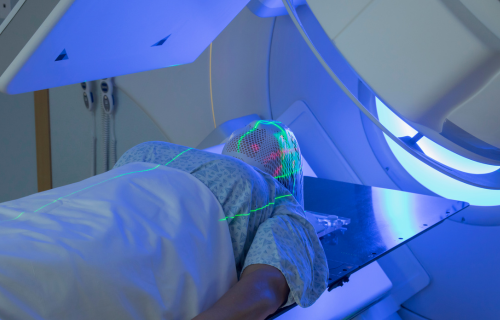Age-inclusive Radiation Therapy
Thursday, 11 September, 2025
Share

Congratulations to UCD School of Medicine’s Professor Shane O’Hanlon and TCD’s Assistant Professor Anita O’Donovan on their recently published research titled ‘Age-inclusive radiation therapy: a convergence of technological precision and patient-centered care’.
Key Findings
- Radiation Therapy remains underutilised in the older population
- New techniques enable more personalised therapy with less toxicity
- Important to consider how frailty, cognitive impairment and mobility can impact on treatment
- Radiation Therapy is a safe, effective and potentially curative option for older people
Abstract
Radiation therapy (RT) is a cornerstone of cancer management, required in approximately half of all cancer cases, and is particularly relevant for older adults, who constitute the majority of oncology patients. Despite its localized nature and generally favorable toxicity profile, RT remains underutilized in this population, often due to age-related biases, comorbidities, or the limited integration of geriatric assessment into treatment planning. This review examines the evolving role of RT as an age-inclusive modality, highlighting innovations such as intensity-modulated and stereotactic techniques that enable more conformal, less toxic, and increasingly personalized regimens for older adults. Special attention is given to the challenges of frailty, cognitive impairment, and movement disorders, which may complicate treatment delivery and necessitate tailored adaptations. The role of comprehensive geriatric assessment and frailty screening tools is critically appraised, with emphasis on their predictive value in identifying treatment-limiting vulnerabilities and supporting shared decision-making. The review underscores the need to shift from age-based to function-based treatment paradigms, advocating for greater inclusion of older adults in clinical trials and for a multidisciplinary approach that aligns oncologic goals with patient priorities. When appropriately tailored, RT provides a safe, effective, and goal-concordant treatment option for older adults, and its optimized integration into geriatric oncology care is essential to meet the needs of an aging global population.
Read the full paper (opens in a new window)here.